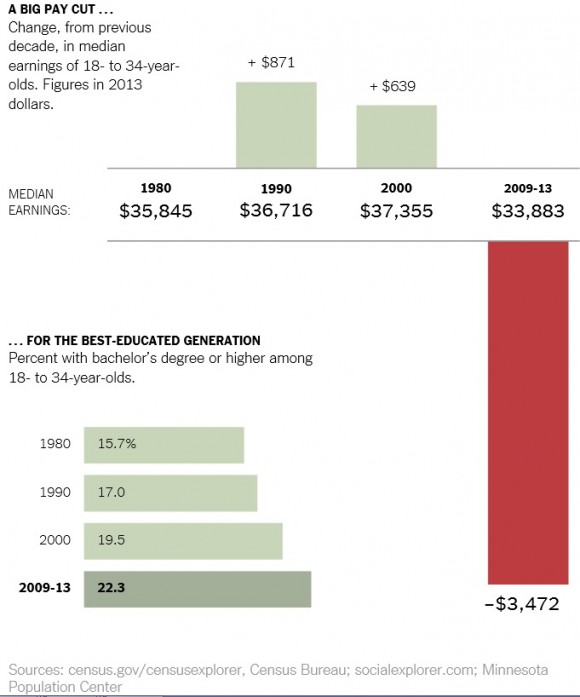Dear Commons Community,
Those of us who read Maureen Dowd’s column have been waiting for her to come out swinging at Donald Trump especially after his blast of Fox News Megyn Kelly for her questions at the Republlican debate on Thursday night. Here are parts of her surprising take on “The Donald” as published in her column today.
“So when Fox News’s Megyn Kelly grilled Trump during the Republican debate, asking him about his sometimes vicious Twitter account and noting, “You’ve called women you don’t like ‘fat pigs,’ ‘dogs,’ ‘slobs’ and ‘disgusting animals,’ ” I knew what the glamorous former litigator [Kelly] was up to.
It was Tom Cruise taunting Jack Nicholson in “A Few Good Men.” Kelly was trying to get Trump to lash out in a misogynist way. But he restrained himself in the hall, staying away from the slob-to-supermodel rating system he likes to use. He showed his irritation later, tweeting that the anchor “bombed” and was “totally overrated” and “angry,” and he retweeted a post calling her a “bimbo.”
There was something amusing about Fox News, which is a daily Miss Universe pageant, chockablock with glossy beauties as anchors, reporters and even “experts,” giving The Donald a hard time about focusing on women’s looks.
I came away from the debate thinking three things: Roger Ailes is a television genius. It’s no coincidence that he presided over the ninth-most-viewed show ever on cable, after college football, with the extra kick of eclipsing his nemesis Jon Stewart’s big finale.
Kelly has a lot of Tim Russert in her: She knows how to set up mesmerizing Gunfights at the O.K. Corral, loaded for a follow-up after every salvo.
And Trump is, as always, the gleefully offensive and immensely entertaining high-chair king in the Great American Food Fight. He is, as Kurt Andersen wrote in 2006, “our 21st-century reincarnation of P. T. Barnum and Diamond Jim Brady, John Gotti minus the criminal organization, the only white New Yorker who lives as large as the blingiest, dissiest rapper — de trop personified.”
The novelist Walter Kirn tweeted post-debate: “Trump is simply channeling the bruised petty enraged narcissism that is the natural condition of Selfie Nation.”
After all, as James Gleick has tweeted, “Running for president is the new selfie.”
….
I enjoy Trump’s hyperbolic, un-P.C. flights because there are too few operatic characters in the world. I think of him as a Toon. He’s just drawn that way…
After covering nine presidential races, I have concluded that it is really hard to know who you’re electing — even after attenuated campaigns with an absurd amount of exposure for candidates.
That’s because you can’t foresee what crises will crop up, or what gremlins of insecurity and perversity the White House will inevitably elicit in presidential psyches.
You can have a candidate like W., after sincerely telling us he will have a “humble” foreign policy, proceed to stumble jejunely into decades-long wars in the Middle East. You can have a charming newcomer like Barack Obama, ascending like a political Pegasus, who loses altitude because it turns out he disdains politics.
It’s always a pig in a poke. So why not a pig who pokes?
It will cause winces and grimaces at times and Trump can go badly astray, as he did with the president’s birth certificate. His jibes at women may hurt the Republican Party with some women.
His policy ideas are ripped from the gut instead of the head. Still, he can be a catalyst, challenging his rivals where they need to be challenged and smoking them out, ripping off the facades they’ve constructed with their larcenous image makers. Trump can pierce the trompe l’oeil illusions, starting with Jeb’s defense of his brother’s smashing the family station wagon into the globe.
Consider how Trump yanked back the curtain Thursday night explaining how financial quid pro quos warp the political system.
“Well, I’ll tell you what, with Hillary Clinton, I said be at my wedding and she came to my wedding,” he said. “You know why? She had no choice because I gave. I gave to a foundation that, frankly, that foundation is supposed to do good. I didn’t know her money would be used on private jets going all over the world.”
Sometimes you need a showman in the show.”
A show indeed. Thanks to Trump that is what the Republican presidential nomination process has become and the media just love it.
Tony



